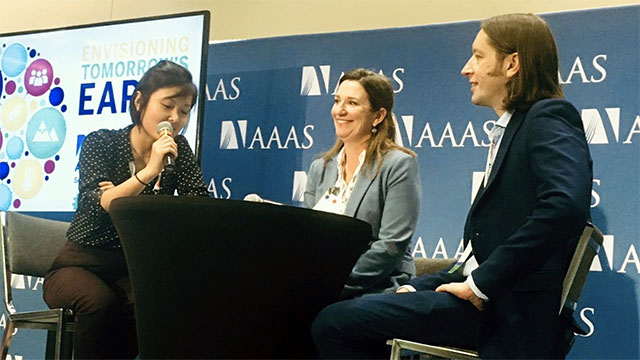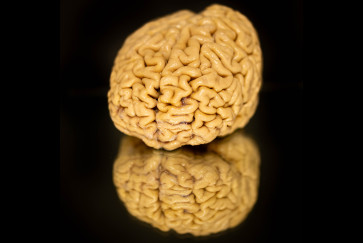Three Northwestern University faculty members from three schools — Linda Teplin, Julius Lucks and Sera Young — presented their innovative research at the recent 2020 annual meeting of the American Association for the Advancement of Science (AAAS). The meeting, “Envisioning Tomorrow’s Earth,” was held Feb. 13 to 16 in Seattle.
Also at the meeting, Chad Mirkin received the 2020 Philip Hauge Abelson Prize from AAAS during the opening presidential address. This award recognizes a scientist, engineer or public servant who has contributed significantly to the advancement of science in the United States. Mirkin is director of Northwestern’s International Institute for Nanotechnology and the George B. Rathmann Professor of Chemistry in the Weinberg College of Arts and Sciences.
The Northwestern researchers and their talks were:
“Persistence and Progression of Substance Use Disorders in At-risk Youth”
Substance use disorders — including opioid use disorder — are the most common disorders among delinquent youth. However, little is known about the persistence and progression of these disorders during adulthood. Using data from the Northwestern Juvenile Project, Linda Teplin examined disorders after detention, up to median age 31, and she focused on differences by sex and among African Americans, Hispanics and non-Hispanic whites.
Teplin is the Owen L. Coon Professor of Psychiatry and Behavioral Sciences and director of the Health Disparities and Public Policy Program in the department of psychiatry and behavioral sciences at Northwestern University Feinberg School of Medicine.
“Rapid and Low-cost Technologies for Monitoring Water Quality in the Field”
Julius Lucks, an internationally recognized leader in synthetic biology, is developing a new technology platform to allow individuals across the globe to monitor the quality of their water cheaply, quickly and easily. Lucks discussed how advances made at Northwestern’s Center for Synthetic Biology are making these discoveries possible.
Lucks is an associate professor of chemical and biological engineering at the McCormick School of Engineering.
“A Simple Indicator of Global Household Water Experiences”
Sera Young, discussed the Household Water Insecurity Experiences Scale (HWISE.org), the first globally equivalent scale to measure experiences of household-level water access and use. Young led a large consortium of scholars in the development of the HWISE Scale, which permits comparisons across settings to quantify the social, political, health and economic consequences of household water insecurity. The HWISE Scale is already being used by scientists and governmental and non-governmental organizations around the world, including the Gallup World Poll.
Young is an associate professor of anthropology in Weinberg College.
The AAAS meeting, with dozens of sessions exploring recent developments in science and technology, draws thousands of researchers, educators, journalists and science enthusiasts from around the world. AAAS is said to be the largest general scientific society in the world.


